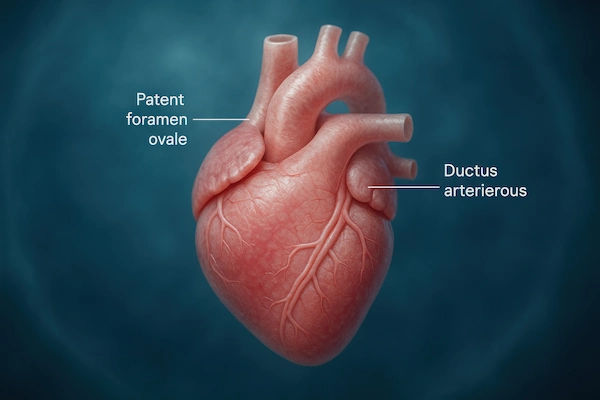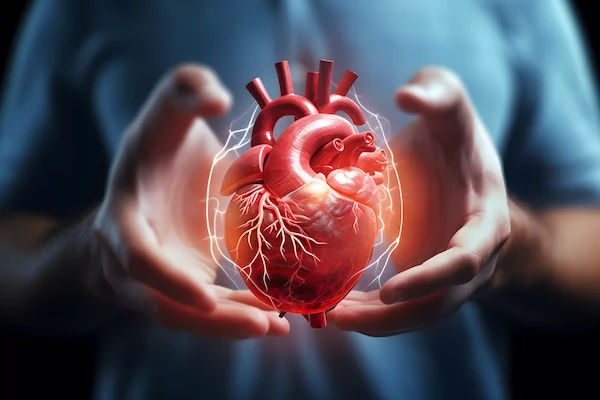- Male
- 21 Years
- 20/02/2025
Can a young person really die from hypertension? I'm super anxious because whenever I get anxious, my heart starts racing and I worry it might lead to a sudden cardiac arrest. Is that something I should be concerned about?
Answered by 1 Apollo Doctors
Hypertension can lead to serious health complications if left untreated, including an increased risk of heart disease, stroke, and kidney damage. While it is rare for a young person to die directly from hypertension, it is important to manage and control high blood pressure to prevent long-term complications. Anxiety itself does not directly cause hypertension, but it can contribute to temporary spikes in blood pressure. It is important to address and manage anxiety to prevent these spikes and reduce the risk of complications. In your case, managing anxiety may help reduce your heart palpitations and lower the risk of sudden cardiac arrest. To help manage your anxiety and reduce the risk of complications, you can consider speaking with a healthcare provider about potential treatment options. Additionally, practicing relaxation techniques, regular exercise, and maintaining a healthy lifestyle can also help improve your overall well-being.
Dr. Dhankecha Suggests...
Consult a Cardiologist
Answered 04/07/2025
0
0

Ask Apollo
AI powered Health Chatbot
-
Hypertension in Young Adults:
- While possible, it's rare for hypertension to cause sudden death in a healthy 21-year-old without other health issues.
-
Anxiety and Heart Rate:
- Anxiety can increase heart rate, which is a normal stress response and typically not dangerous.
-
Sudden Cardiac Arrest:
- Uncommon in young, healthy individuals without pre-existing heart conditions.
-
When to Seek Medical Attention:
- Consult a doctor if you experience chest pain, fainting, severe shortness of breath, or persistent palpitations.
-
Managing Anxiety:
- Techniques like deep breathing, mindfulness, and professional support can help manage anxiety symptoms.
If concerns persist, discussing them with a healthcare provider can offer reassurance and guidance.
Answered 20/08/2025
0
0

More Cardiology Health Queries
View allI'm concerned about my blood pressure; it's around 140 over 88. I'm wondering what precautions I should take? Also, what should I include in my diet? And could you recommend some exercises I should consider? I'm 184 cm tall and weigh 80 kg.
To help lower your blood pressure, you should focus on maintaining a healthy lifestyle. Start by incorporating a diet rich in fruits, vegetables, whole grains, and lean proteins while limiting your intake of saturated fats, cholesterol, and sodium. Consider the DASH (Dietary Approaches to Stop Hypertension) diet as a guide. Additionally, engage in regular physical activity such as brisk walking, jogging, cycling, or swimming for at least 30 minutes most days of the week. Aim to achieve and maintain a healthy weight by combining a balanced diet with exercise. It's also important to manage stress levels, get an adequate amount of quality sleep, and limit alcohol consumption. In terms of medication, if lifestyle modifications are not sufficient, you may need to consult a healthcare provider for prescription antihypertensive medications
Answered by 1 Apollo Doctors
I wanted to get some clarity on my ECG results. I'm a bit concerned about terms like "sinus rhythm," "short PR interval," and "slight STT abnormality." The data mentions stuff like P duration, PR interval, and QRS durationwhat do these mean for my heart health? And should I be worried about the diagnosis info or the numbers related to things like the PQRST axis? I'd appreciate any guidance on whether my report is looking good or if there are things I need to watch out for.
Based on your ECG report, your heart rate is 97bpm which is within normal range. The P duration, PR interval, and QRS duration are all within normal limits. The QT interval is slightly prolonged, but the corrected QT interval (QTc) is within normal range. The PQRST axis values are also within normal range. The RV5SV1 and RV6SV2 amplitudes are within normal limits as well. The diagnosis information indicates sinus rhythm, a short PR interval, and slight ST-T abnormality in leads II and aVF. Sinus rhythm is a normal heart rhythm, a short PR interval can be benign in some cases, and slight ST-T abnormalities may not necessarily indicate a serious issue. Overall, based on the information provided in your ECG report, it does not appear to be a concerning report for your heart. However, it is important to follow up with your healthcare provider for further evaluation and interpretation of the results.
Answered by 1 Apollo Doctors
My final diagnosis shows mitral annular calcification with concentric LVH and RWMA in the LCX territory. There's mild LV dysfunction with an LVEF of 49%, trivial MR, and grade 1 diastolic dysfunction. No TR or PE was noted. Do I need surgery for this, or what treatment options should I consider? I'm 65 and a bit worried about the next steps.
Given your diagnosis of mitral annular calcification, concentric LVH, RWMA in the LCX territory, mild LV dysfunction (LVEF 49%), trivial MR, and grade 1 diastolic dysfunction, you don't necessarily need surgery for the mitral annular calcification itself. The focus should be on managing the LV dysfunction, coronary artery disease (CAD), and potential issues related to the RWMA.
Answered by 1 Apollo Doctors
Disclaimer: Answers on Apollo 247 are not intended to replace your doctor advice. Always seek help of a professional doctor in case of an medical emergency or ailment.

 What are the signs of a heart attack?
What are the signs of a heart attack? 

